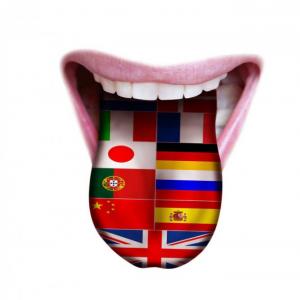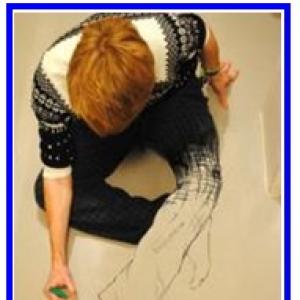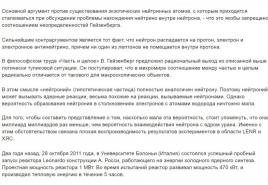What are the programs at school. Overview of school programs for first graders
Currently, there are two systems for preparing children in primary school: traditional and developing. Each has its own programs inside. The traditional programs include: "Primary School of the 21st Century", "School 2100", "School of Russia", "Harmony", "Perspective Primary School", "Classical Elementary School", "Planet of Knowledge", "Perspective". Developing systems include two programs: L.V. Zankov and D.B. Elkonin - V.V. Davydov.
Different programs can be applied within the same school. Regardless of the program, the student has the opportunity to receive the same knowledge, assumed state standard... Tasks of increased difficulty, which are associated only with developmental systems, are found in all programs, but are not required for study.
School of Russia
The traditional program "School of Russia" (edited by A. Pleshakov) has existed for decades. The Russian school is the program by which all Soviet schoolchildren studied. Of course, it has undergone major changes in terms of content, but the learning objectives have remained the same. The most common misconception about this training program is that it is out of date. This is far from the case. The program has been repeatedly updated since 2000, improved and supplemented. This program allows you to thoroughly practice your skills learning activities (reading, writing, counting), which are necessary for successful study in high school.
Harmony program
Educational-methodical set "Harmony" (under the editorship of NB Istomin (mathematics grade 3), MS Soloveichik and NS Kuzmenko (Russian), OV Kubasov ( literary reading), O.T. Poglazova ( the world), N.M. Konysheva (labor training)) is successfully practiced in many schools. This program identifies common goals and objectives for all academic subjects, identifies priority teaching methods and forms of organizing educational activities.
Pros of this program :
there is advanced learning, the textbooks included in the kit contain a methodological part, with the help of which parents can themselves study and explain the missing topic to the child. The program uses new learning technologies that help develop the child's ability to think logically. It is also noteworthy that the set offers tasks designed for children of different levels of preparedness. But there are also disadvantages: in mathematics, solving problems begins only in the second grade, and test papers offered the same for all classes.
Primary school XXI century
Primary school XXI century edited by N.F. Vinogradova. In this set, the problem of the formation of the educational activity of a younger schoolchild is very seriously considered, and this is the only set where there is a parallel program "Educational activity". The material of this program is designed for strong erudite children. With what baggage of knowledge a student will move to high school depends on the teacher primary grades... Therefore, the main goal is to teach the child to learn. It is important that Vinogradova's set realizes the child's right to his individuality: children are placed in conditions where they can independently acquire knowledge, apply it, reflect, fantasize, play (special notebooks "Learning to think and fantasize", "Learning to cognize the world around them" are provided)
School 2100
School 2100, edited by A.A. Leontyev. This program, according to some estimates, is the most widespread in our region. Every year, everything works on this educational program more teachers... The main advantage of this program lies in the deep continuity and continuity of education. Under this program, children can study from the age of three and up to admission to a university. All textbooks of the program are built taking into account the psychological specifics of age. A characteristic feature of this educational program is the following principle: the educational material is offered to students to the maximum, and the student must master the material at a minimum of the standard. Thus, each child has the opportunity to take as much as he can. The program teaches children to act independently and is aimed at the development of logical thinking, speech, imagination, memory.
When choosing a school for a child, parents take into account many factors: location, traditions, educational bias of the school, reviews. Now this list has been replenished with one more important item: the training program.
Various work programs for each link of the school from grades 1-11 ... As a rule, general education institutions choose several educational programs, especially in primary grades, and parallel classes are taught according to different teaching materials.
Today it is important for parents to know: how to choose the right one educational program and how are they different? This issue is especially relevant in elementary school, because it depends on how successfully the child will learn.
Let's make a reservation right away: it is incorrect to divide programs into "bad and good". All programs primary school according to FSES are approved by the Ministry of Education of the Russian Federation. They are simply designed for different ways of perception and take into account the peculiarities of the child's thinking. One thing in common: all programs allow the student to master necessary minimum knowledge for elementary school. The difference is in the presentation of the material, in the organization of educational activities, in the variety of exercises.
Primary School Education Programs
1. School of Russia program (edited by A. Pleshakov) is one of the oldest and time-tested programs. Since Soviet times, the program has been repeatedly improved and adapted to the realities of the new time.
Designed for all children and allows you to carefully work out your writing, reading and counting skills.
2. The program "Beginner school XXI century"(edited by NF Vinogradova). The material is complex, designed for erudite children. The program teaches independence, a lot of work is underway to foster interest in educational process, the ability to properly organize studies. There are many additional materials and exercises aimed at developing memory, logic, horizons, imagination. Each student can study at the chosen pace, as there are tasks of different levels of difficulty and different directions.
The main goal of the program: to teach the child to learn.
3. Primary promising school program... Features: no need to cram rules, theorems and axioms. The emphasis is on the development of logic, intelligence and analytical thinking. Additional hours for drawing, music, physical education are provided.
Suitable for any child, regardless of his level of preparedness for school.
4. School 2100 program (edited by A. A. Leontiev). This program is gaining more and more fans. The undoubted plus of the program: the continuity of education, since it can be practiced from the age of 3 to graduation.
Feature of the program: the educational material is given to the maximum, diverse, multi-level. The student himself chooses how much knowledge will be sufficient. An individual approach to each child is used.
Suitable for all children.
5. "Harmony" (under the editorship of N. B. Istomin). The program involves close collaboration with parents. Many topics are encouraged to be discussed first at home. Much attention is paid to the development of self-education skills.
Priority is given to students' independent work. Techniques of observation, selection, transformation and design are actively involved. All material is presented in different ways, students' own experience, the practical orientation of knowledge are taken into account.
Suitable for children with analytical thinking and technical aptitude.
6. "Planet of Knowledge" - focused on the development of creative abilities. During the training, schoolchildren compose fairy tales themselves, stage plays, carry out projects, make presentations.
Gives the necessary minimum of knowledge, skills and abilities. Everything beyond the program is at the request of the students.
Suitable for children with a humanitarian bias.
7. Primary school program "Perspective". Here, much attention is paid to the issues of raising children as citizens of their country, the formation of moral positions.
Many tasks are aimed at developing logic and imagination. A huge amount of additional material, for each subject - several manuals. The teaching principle is dialectical. The presentation of the material is accessible, although sometimes boring.
Suitable for all children, regardless of their preparedness for school.
8. L. V. Zankov's program... The system includes a huge amount of material. All lessons are equal, great attention is paid to the development of logic, analytical thinking, skills independent work... There are electives in computer science, economics, foreign languages... Training is conducted at a fast pace.
Suitable for children well prepared for school.
9. Elkonin - Davydov program... A rather controversial program, but very interesting for children. Much attention is paid to theoretical thinking, the construction of problems, problematic issues and the search for their solution. Learning is slow. Of the minuses, only a discrepancy in some of the terms studied can be noted. For example, textbook authors call verbs action words, and nouns words-objects. This creates certain difficulties in high school.
Above. It made it possible to teach and educate a child who approached high school fully armed.
In the early 1990s, the relevant services began to pay special attention to programs. As a result, many options for teaching first graders were born. Currently, about ten major programs are offered to help children develop their inherent inclinations. At least that's how it looks on paper.
According to the Law on Education, each school has the right to independently choose one or another program. Parents, on the other hand, have the opportunity to choose a training option based on the child's abilities and level of learning, since there are complex programs, and there are simpler ones.
"School of Russia"
The most traditional school curriculum is the School of Russia. They studied on it in soviet times... It is designed for almost all students. Naturally, they modernized it, added new knowledge to develop logic. Moreover, it is easy to digest. Probably, it is the School of Russia that acts as the most versatile and best program for the majority of children.
Zankov's developmental program
This program is designed to give the child the maximum of theory, then at a certain moment he will have an impetus in development. The material is given as quickly as possible, practically in all areas of life.
There are no main and secondary subjects here. Each lesson is built in the form of a dialogue, there are search and creative tasks. The program is given harder than the School of Russia. Students must be developed and prepared. If the child has not attended kindergarten, it will be difficult for him to master this version of the program.
Elkonin - Davydov developmental program
A very complex program aimed at developing theoretical thinking in children. The student is taught to change independently, putting forward simple hypotheses, looking for evidence and arguments. This is good for memory. Suitable for children who are slightly ahead of their peers in development.
"School-2100"
Educators believe that this program is designed to teach how to learn. A lot of tasks are given that develop logic, intelligence. Many problems are presented in a ready-made printed form so that the student can finish drawing them by entering the necessary icons or numbers into the cells.
System interesting topics, which is multilevel, that is, tasks are given separately for strong and lagging children. This approach allows you to take into account the development of each student separately.
"Primary school of the 21st century"
It is a gentle program with a long adaptive period. The authors believe that children adapt to school life only by the end of the first grade. Learning programs develop thinking, imagination. However, some items can be combined into one. For example, "Gramota" includes the Russian language and literature. The program can be suitable for any child.
This program is one of the most painless for children to adapt to school.
"Harmony"
It is very similar to the Zankov program, but a little simpler. The program is designed to develop the child in many ways - logic, intellect, artistic creativity, emotional abilities. The role of the teacher is to create a comfortable attitude in all parameters among students.
"Promising Primary School"
The program focuses on supra-subject competencies, but not on skills, knowledge and logic. For example, mathematics develops logic and intelligence.
The student will not cram theorems and all kinds of axioms. But the children will be asked to do extracurricular work. For example, first graders will be a plus for drawing 10 hours a year, like music and sports. The program is designed for ordinary children and will suit most first graders.
It is impossible to unambiguously single out the best program, since everything depends on the characteristics of the child's development, his predispositions. To make the right choice, it is better to talk to teachers who will give you recommendations. Do not think that studying according to the Zankov program, the child will be smarter than the one who chose School 2100. It all depends on himself and his innate talents, predispositions.
The modern elementary school offers two systems of teaching children: the traditional one, which includes seven programs: "School of Russia", "School 2100", "Primary school of the XXI century", "Harmony", "Classical primary school", "Promising primary school" , "Planet of Knowledge", and developing, including two programs: L.V. Zankov and D.B. Elkonin - V.V. Davydov.
Recently, some traditional primary school programs have undergone significant changes, have been greatly improved and they can already be attributed to developmental programs.
The traditional program "School of Russia" - the name speaks for itself. This training and metodology complex created specifically for teaching children living in Russia, introducing them to the traditions and culture of their great country. This is a kind of school for spiritual and moral development. The School of Russia program is focused on bringing up such qualities in children as kindness, responsibility, the ability to empathize and help in difficult times. It develops students' interest in studying their homeland, its nature, history, thereby fostering such an important and rare quality in our time as patriotism.
The authors, creating this program, relied on the many years of pedagogical experience of the Soviet and later Russian schools. Learning is based on a smooth transition from simple to complex. The program carefully trains reading, writing and numeracy skills, which is the basis for further successful learning.
Textbooks for the School of Russia program are very modern, colorful and interesting for a child, they perfectly stimulate cognitive activity.
The School 2100 program is the only one of all, which is a system of continuing education from preschool age before leaving school. According to her benefits, children can study from the age of three and ending with the graduation class. The program clearly goes beyond the traditional framework, including elements of a developing program.
The educational and methodological complex of the "School 2100" program is focused on the development of the child as a person, the identification and development of his creative abilities and interest in learning. Develops in children such qualities as decisiveness, independence, the ability to make decisions, the ability to analyze, logical thinking, imagination and speech.
Teaching is based on the fact that the basic concepts, rules and conclusions are not given to children ready-made, they must come to them themselves, the teacher only guides the child in the right direction. That is, children learn to act independently. Many assignments are based on obtaining information from sources other than educational literature.
The educational program "School of the XXI century" refers to traditional programs, however, it is also inherently developmental. She most gently adapts former preschoolers to a new field of activity for them - school. The training is structured as a game. Most of the teachers in Russia prefer to study in this particular program. The program is aimed at the harmonious development of the personality, the development of motivation for learning activities and self-education. Helps the child understand why it is necessary to study at all, why you need to take your education seriously.
Being engaged in this program, children learn to independently acquire knowledge through reflections, analyzes, fantasies. Can evaluate their own successes and failures in school. The teacher with the children in the class behaves on an equal footing, allowing the children to think, debate and, thus, reach the truth.
Each student has the opportunity to study at an individual pace, because the teaching material contains tasks of different levels. The set of textbooks includes the so-called notebooks for correctional and developmental work of the student, according to which you can additionally study with the child in case of lag and misunderstanding of the material. The focus is not on the correct answer, but on the decision process itself.
A set of textbooks for the program "Primary school of the XXI century" was awarded the Prize of the President of the Russian Federation in the field of education, is the winner of the "competition for the creation of a new generation of textbooks for primary schools."
"Harmony" is a program that combines methods of traditional education with developing ones. The name suggests that the program is aimed at development harmonious relationship teachers with students and children among themselves. The program helps to develop logical thinking, creativity. Aimed at strengthening the physical and mental health of the child.
The educational material is very interesting, the emphasis is on advanced learning, new promising technologies are used in teaching children of different levels of development. Children do not cram the rules, but with their own minds, with the help of special exercises, they come to the necessary conclusions.
The set includes textbooks containing a methodological part, so parents themselves at home can explain the topic to the child, help to cope with homework. Children who have received primary education according to the program "Harmony" are distinguished by high literacy.
The educational-methodical set in mathematics of the Harmony program was awarded the Prize of the Government of the Russian Federation in the field of education.
 "Classical Primary School" is a traditional program, almost identical to the "School of Russia" program. It differs from it in its set of textbooks. This is the most classic, effective program developed over the years for primary education... It is completely built on traditional methods, but with the introduction of modern scientific pedagogical approaches. Thanks to the gradual study and firm consolidation of reading, writing and counting skills, it gives children good base for continuing education in high school. From the first days of classes, the program is focused on making children interested in further learning.
"Classical Primary School" is a traditional program, almost identical to the "School of Russia" program. It differs from it in its set of textbooks. This is the most classic, effective program developed over the years for primary education... It is completely built on traditional methods, but with the introduction of modern scientific pedagogical approaches. Thanks to the gradual study and firm consolidation of reading, writing and counting skills, it gives children good base for continuing education in high school. From the first days of classes, the program is focused on making children interested in further learning.
All textbooks and notebooks are decorated with colorful illustrations. The lessons are filled with various competitions, games and quizzes. Some of the assignments are aimed at working with parents, thereby introducing them to the exciting process of educating their children. The program helps the child to love the book and teaches to work with it. The knowledge of the program is not given in a finished form, but must be obtained jointly by the students and the teacher, that is, the program contributes to the development of logical thinking.
The Prospective Primary School program is the most successful of all the existing programs, suitable for rural schools, in which students in grades 1-4 study at the same time sitting in the same room. It contains all the important methods from all existing programs. The program was created taking into account the age categories of schoolchildren, be it a six-year-old first grader or an eight-year-old, and takes into account the different level of preparation of the student. The emphasis is on both the individual activities of the child and the joint work of students, contributing to the development of dialogue between them. It teaches to work not only with the textbook, but also with various reference books. The teacher gives the task to a group of students, he himself leaves to work with another group. Thus, schoolchildren develop independence, the ability to work and live in a team, that is, to help others, to criticize and adequately respond to criticism addressed to them, to be able to explain and defend their point of view.
The program is built strictly on the principle of complication teaching material... In this program, children learn fluent reading, writing and counting skills the fastest.
Textbooks are filled with interesting fabulous material that helps to develop creative thinking, logic and memory. Much time is devoted to the physical health of children, teaching the child to cleanliness, order, gymnastics and daily routine. Study assignments involve parents in doing assignments together.
The traditional program "Planet of Knowledge" is good because even the smallest children can study on it. The approach to teaching is non-standard and departs from the classic “the teacher explains the task, the children do it”. All tasks are educational in nature. The program is focused on the development of creative abilities in children. Each child enrolled in the Planet of Knowledge program has his own teaching method that helps him to master the material perfectly. The program stimulates the manifestation of independence, initiative, helps to see the same object in different ways.
The set of educational literature is interesting in that before the beginning of each section there is a plan for further training. Thus, the child sees what he will learn in the future. Each section after study ends verification work and a test sheet, which allow the teacher, as well as the student himself, to test their knowledge of this section. Textbooks contain many tasks of various difficulty levels, which allows students to choose an assignment just for themselves. Many of the exercises focus on reference literature and group work, building social communication skills in children.
Developing program L.V. Zankova is the complete opposite of traditional programs. It is based on the trusting relationship between teacher and student. The teacher first proposes to complete the tasks, and the students must reach the theory with their own mind through various discussions, obtaining information from various sources, reflections and disputes. The program perfectly reveals the individual abilities of each child. Focused on awakening interest in learning, on the development of intelligence and curiosity. It is difficult enough, because the learning process is fast, and at the same time it is very attractive and exciting for children.
In addition to school lessons, the program involves close communication between the teacher and children and outside the school through joint visits to various cultural events, walks and excursions. Children who studied under the L.V. Zankova, excellent interlocutors, have a wide outlook and their knowledge is much higher than that of children studying according to traditional systems.
The developing program Elkonin - V.V. Davydova is focused on the development of strong theoretical knowledge in children, that is, the rules and concepts here occupy a dominant position, but they are not given in the form of ready-made truths. Children must reach them on their own logical thinkingworking in a group or individually, debating, arguing among themselves and discussing the results. And only then, with the help of the teacher, make the right conclusions. The program develops in the child the ability to think deeply and unconventionally.
The program is much more saturated than usual traditional programs. Children who have learned from it are very sociable, respect the opinions of others, but they also do not take all words on faith, they require obligatory proof.
There are few homework assignments for this program, everything is decided in the classroom, where the children are busy interesting workbut they rest at home.
Many textbooks are winners of new generation textbook competitions.
The program is considered complex, but only because there are very few competent teachers who can work on this program.







